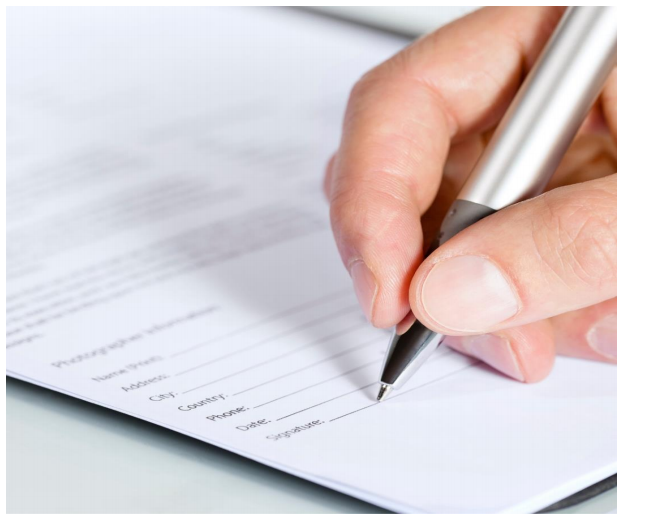Table of Contents
Settlement and Releases: What You Need to Know
When disputes arise, whether over money, contracts, or other civil matters, many people find themselves in small claims court. One of the best ways to resolve these issues without going to trial is through a settlement and release agreement. These agreements can save both parties time, money, and the stress of a courtroom battle. In this guide, we will explain the ins and outs of settlement and release agreements and answer common questions about how they work in small claims court.
How our Settlement and Release Lawyers can help you
At SK Legal, our team specializes in navigating the complexities of small claims court. We understand the importance of effective communication during settlement discussions and the need for precise documentation in releases. Our experienced settlement and release lawyers are here to ensure that your rights are protected and that you achieve a satisfactory resolution.
What Is a Settlement Agreement?
A settlement agreement is a legally binding contract between the parties involved in a dispute. In a civil case, one party (usually the defendant) offers to pay the other party (the plaintiff) a specific amount of money or fulfill other conditions to resolve the dispute without going to trial. If both parties agree to the terms, the court case ends, and no further action is required.
The benefits of the settlement include:
- Speed: Resolving a case quickly without the delays associated with a court trial.
- Cost savings: Avoiding legal fees and court costs.
- Certainty: Both parties know the outcome and can avoid the unpredictability of a trial.
What Is a Release Agreement?
A release agreement is a document that typically accompanies a settlement. It outlines that the party receiving the settlement will not pursue any further claims or legal action related to the case. Once a release is signed, the plaintiff gives up their right to sue or continue the legal action. This brings finality to the dispute and ensures that all parties are protected from future litigation related to the issue at hand.
The Process of Settling a Small Claims Case
In small claims court, a settlement can be reached at any point before a court judgment. If both parties agree to settle, they can notify the court and file the necessary paperwork, such as a Notice of Withdrawal, to end the case officially.
Here’s a basic overview of the process:
- Negotiation: The defendant offers a settlement amount to the plaintiff. This can happen directly between the parties or through their legal representatives.
- Settlement offer: The defendant may either pay the plaintiff directly or pay the money in court.
- Acceptance or refusal: The plaintiff can accept or reject the settlement offer. If accepted, the case is withdrawn, and the release agreement is signed. If refused, the case proceeds to trial.
- Filing the paperwork: Once the money is received, a Notice of Withdrawal is filed with the court, officially closing the case.
How Settlements Affect Court Proceedings
Even if a court date has already been set, parties can settle the case at any time. It’s essential to notify the court as soon as possible, allowing the court to cancel the hearing. Settlements made after a court date has been set may involve additional paperwork, such as filing a Notice of Withdrawal.
What Happens If a Settlement Is Refused?
If the plaintiff refuses to accept the settlement offer, the case will continue through the legal process, and a trial date will be scheduled. However, it’s important to note that if the case goes to trial and the plaintiff is awarded an amount less than what was offered in the settlement, they may be responsible for paying the defendant’s court costs incurred after the settlement offer was made.
Key Considerations in a Settlement and Release
When drafting a settlement and release agreement, several key factors should be addressed to avoid future legal complications:
- Specificity: Ensure that the release clearly defines the issues being resolved. All claims and damages that are part of the case must be covered.
- Parties involved: The release should list all individuals and entities that are being discharged from liability.
- Finality: Make sure that the release prohibits future claims or legal action related to the same issue.
Example: Settling a Small Claims Dispute in Alberta
In Alberta, settlement and release agreements are commonly used to resolve small claims disputes, especially those involving personal injury, property damage, and contract disagreements. When the defendant pays the settlement amount in court, the court clerks notify the plaintiff. The plaintiff then has 30 days to accept or refuse the settlement. If accepted, the clerks issue the payment, and the case is officially closed.
Benefits of Settling a Small Claims CaseSettling a small claims case offers several benefits, including:
- No trial needed: Avoid the stress and uncertainty of a courtroom battle.
- Saves time and money: Trials can be expensive and time-consuming.
- Confidentiality: Settlements are private, whereas court judgments are part of the public record.
- Flexibility: Settlements can include terms that the court may not order, such as payment plans.
Settlements and releases are integral parts of resolving disputes in small claims courts. By understanding these concepts, you can make informed decisions about how to handle your legal matters. At SK Legal, our dedicated team of settlement and release lawyers in small claims court is ready to assist you. We prioritize your interests and strive for the best possible outcomes in your legal matters.

What is a settlement?
A settlement is an agreement between parties to resolve a dispute without going to trial.
How can I settle my civil claim?
You can initiate settlement discussions with the other party or through your lawyer. This can lead to direct payment or payment into court.
What is a release?
A release is a legal document that indicates one party agrees not to pursue further claims against the other regarding specific issues.
What are the benefits of settling?
Settling is often more cost-effective, and time-saving, and can provide more control over the outcome compared to going to trial.
Can I still settle if my court date is set?
Yes, you can settle at any time, even if a court date has been scheduled.
What happens if I reject a settlement offer?
If you reject the offer, your case will continue, and you may be responsible for the other party’s costs if you do not win at trial.
How do I file a Notice of Withdrawal?
You must submit the Notice of Withdrawal to the court where your claim was filed, along with copies for each party involved.
How long does it take to receive payment after a settlement?
If the payment is made directly, you will receive it after it clears the bank. If paid into court, it may take several weeks for the check to be issued.
Are settlements confidential?
Yes, settlements can be kept private, unlike court cases, which are typically public records.
Why is it important to have a lawyer during this process?
Having a lawyer ensures that your rights are protected and that all legal documents, like releases, are properly drafted.
- Contract Law Across Countries (Canada and United States)
- Cross Border Services (United States and Canada)
- SK Legal – Contingency Engagements for 100% Success – Serving all of British Columbia and Alberta
- Navigating Personal Injury Claims with SK Legal as Your Trusted Lawyer in Alberta
- SK Legal: Your Trusted Lawyer for Personal Injury Claims in Alberta and British Columbia

